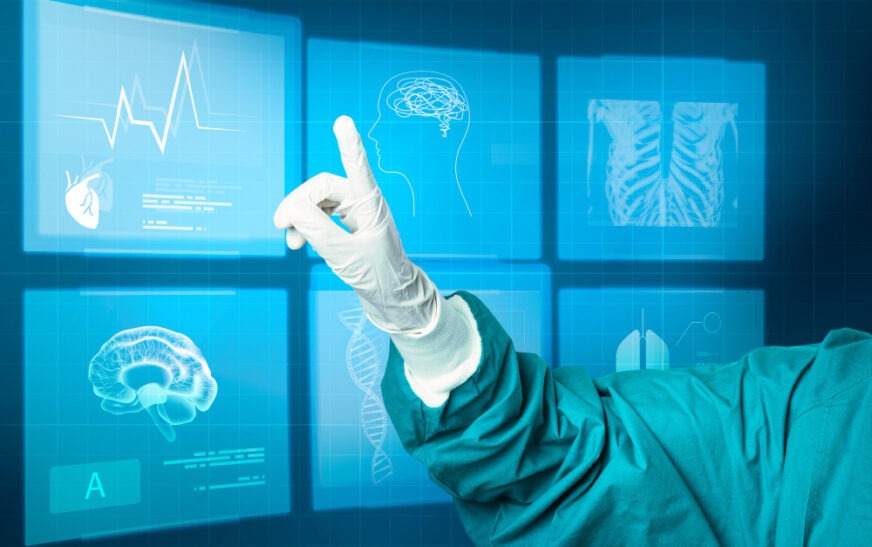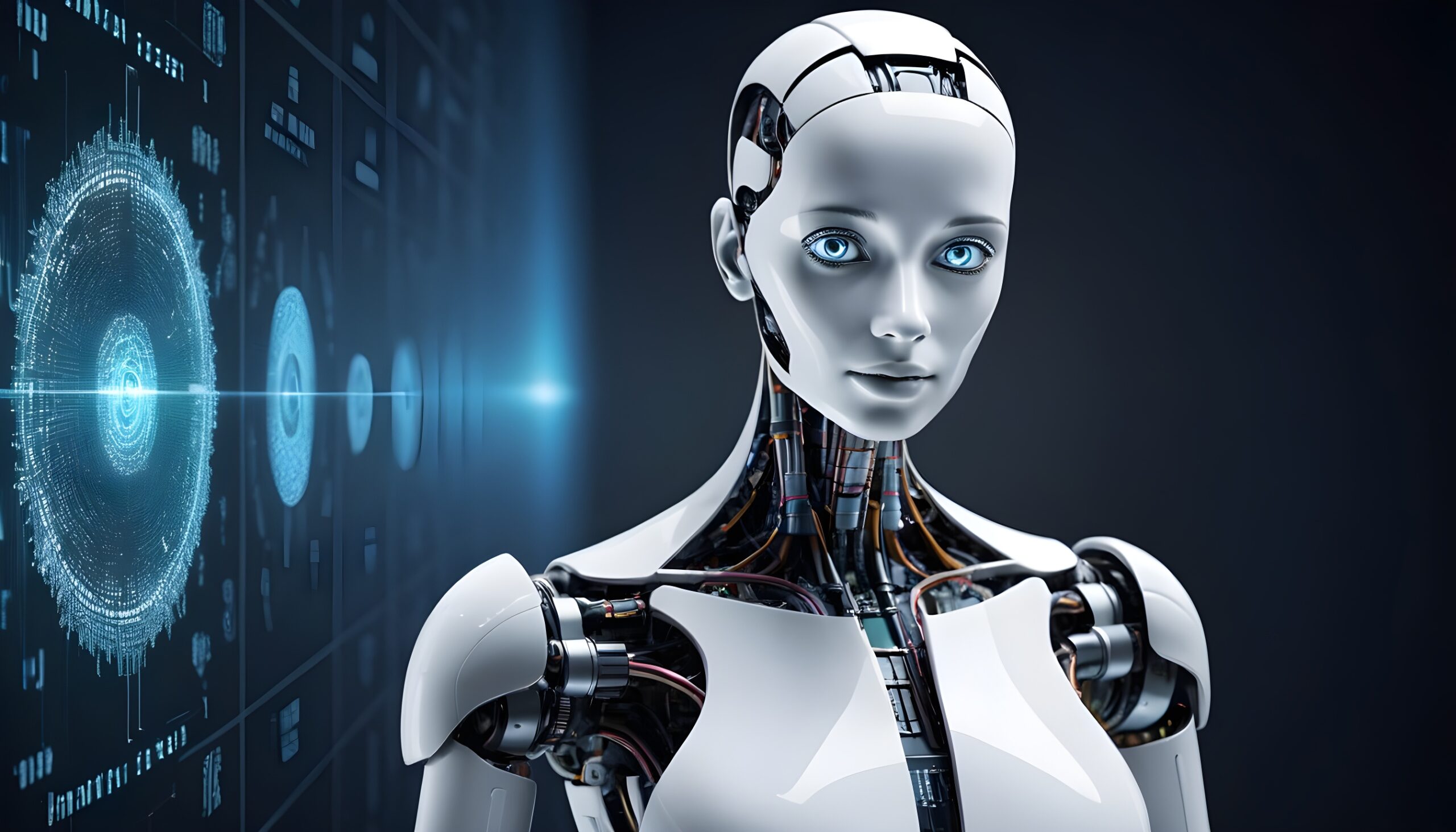Introduction
Welcome to the fascinating world where technology meets healthcare! If you’ve ever wondered how the future of medicine looks, you’re in the right place. With the continuous advancements in technology, artificial intelligence (AI) is at the forefront of revolutionizing how medical diagnosis and treatment are performed. Imagine a world where diseases are detected at their earliest stages, and treatments are personalized to fit each patient perfectly. That’s the power AI brings to the table. It’s not just about futuristic robots performing surgeries; it’s about enhancing accuracy, efficiency, and ultimately, patient outcomes. So, let’s dive deeper and discover how AI is reshaping the landscape of healthcare for the better.
Importance of Artificial Intelligence in Healthcare
The integration of artificial intelligence (AI) into healthcare is transforming the landscape drastically. It’s revolutionizing how medical diagnoses are made and treatments are developed. The importance of AI in this domain cannot be overstated, as it brings precision, efficiency, and innovation to the forefront of medical care. With its ability to analyze large datasets quickly and accurately, AI is enabling doctors and healthcare professionals to make more informed decisions, enhancing patient outcomes.
Enhancing Medical Diagnosis
When it comes to medical diagnosis, timing, and accuracy are critical. AI technologies stand out by drastically improving the speed and precision with which diagnoses can be made. Using algorithms that can interpret complex medical images, AI can identify patterns and anomalies that might be missed by the human eye. This capability not only speeds up the diagnostic process but also enhances the accuracy of the diagnoses, leading to better treatment strategies and improving the chances of successful outcomes for patients.
Improving Treatment Plans
AI doesn’t stop at diagnosis; it extends its benefits to the development of personalized treatment plans. By analyzing a patient’s medical history, genetics, and current health status, AI algorithms can suggest the most effective treatment options tailored to the individual. This approach ensures that patients receive the most appropriate care, reducing the risk of adverse reactions and improving the efficiency of the treatment. Moreover, AI can predict potential complications or diseases, offering a proactive approach to healthcare that was previously unimaginable.
Applications of AI in Medical Diagnosis
The applications of AI in medical diagnosis are wide-ranging and impressive. From detecting diseases with an unprecedented level of accuracy to enabling the early detection of medical conditions, AI is set to become an integral part of medical diagnostics.
Diagnosing Diseases with Accuracy
One of the most groundbreaking applications of AI in healthcare is its ability to diagnose diseases with high accuracy. Algorithms trained with thousands of images or genetic information can recognize the markers of specific diseases, such as cancer, diabetes, and heart conditions, much faster than traditional methods. This capacity not only saves valuable time but also significantly improves patient outcomes by allowing for the immediate initiation of treatment.
Early Detection of Medical Conditions
AI’s ability to analyze vast amounts of data in real-time has opened the doors to the early detection of medical conditions. By monitoring and analyzing patterns in vital signs or genetic markers, AI systems can alert healthcare professionals to potential health issues before they become serious. This early intervention can be the key to preventing diseases from developing or progressing, showcasing AI’s role in transforming healthcare into a more preventative domain.
Personalized Medicine
Personalized medicine is another area where AI is making a huge impact. Through the analysis of genetic data, AI systems can identify the most effective medications and treatments for individual patients, taking into account their unique genetic makeup. This not only enhances the effectiveness of treatments but also minimizes the risk of side effects. AI-driven personalized medicine represents a future where treatments are tailored to the individual, maximizing outcomes and promoting overall health and wellbeing.
AI Technologies in Treatment Procedures
The advancements in AI are not just confined to diagnosing diseases; they extend their reach into treatment procedures, revolutionizing how care is delivered. This section explores how AI contributes to robotic surgery, acts as a virtual health assistant, and hastens drug discovery.
Robotic Surgery
Robotic surgery, assisted by AI, is transforming surgical procedures by enhancing precision, flexibility, and control. These robotic systems allow surgeons to perform complex operations through tiny incisions, using robot-assisted instruments that can move more precisely than a human hand. AI algorithms help in planning the surgical process and can adapt in real-time during surgery to ensure the highest success rates. This not only leads to reduced recovery times for patients but also diminishes the risk of complications.
Virtual Health Assistants
Imagine having a healthcare companion available 24/7 — that’s what virtual health assistants (VHAs) powered by AI offer. These VHAs can provide medical information, remind patients to take their medications, schedule doctor’s appointments, and even monitor symptoms and vital signs. By using natural language processing, they can converse with patients in a friendly manner, making healthcare more accessible. VHAs are especially beneficial in managing chronic conditions, where continuous monitoring and adherence to medications and lifestyle changes are crucial.
Drug Discovery
The process of discovering and developing new drugs is notoriously time-consuming and costly. However, AI is making a significant impact by speeding up this process and reducing costs. By analyzing vast amounts of research data, AI algorithms can identify potential drug candidates much faster than traditional methods. They can also predict how different drugs will interact with various targets in the body, helping to avoid paths that are likely to fail. This not only accelerates the development of new treatments but also leads to more personalized medicine approaches.
Benefits of AI in Medical Diagnosis and Treatment
The integration of AI into medical diagnosis and treatment presents numerous benefits, including increased accuracy, reduced healthcare costs, and faster decision-making.
Increased Accuracy
AI algorithms, trained on vast datasets of medical images and health records, can detect patterns and anomalies that may be invisible to the human eye. In diagnostic procedures, this leads to higher accuracy rates, ensuring that patients receive the correct diagnosis and treatment plan from the outset. For instance, AI has shown remarkable success in detecting cancers at early stages, significantly improving patient outcomes.
Reduced Healthcare Costs
By automating routine tasks and improving diagnostic and treatment accuracy, AI can significantly reduce healthcare costs. Early and accurate diagnoses mean fewer expensive, repeat tests and less trial-and-error in finding the right treatment. Additionally, AI-driven operational efficiencies can streamline hospital workflows, reducing administrative burdens and freeing healthcare professionals to focus more on patient care.
Faster Decision-Making
AI’s ability to rapidly process and analyze large datasets not only leads to more accurate diagnoses but also speeds up the decision-making process in treatment planning. In emergency situations, where time is crucial, AI can provide healthcare professionals with real-time insights, guiding them to decide the most effective treatment options quickly. This not only improves patient outcomes but also enhances the overall efficiency of healthcare delivery.
In essence, AI’s role in medical diagnosis and treatment is transformative, heralding a new era in healthcare that promises better patient outcomes, efficiency, and innovation.
Challenges and Ethical Considerations
With the rapid progress in artificial intelligence (AI) revolutionizing healthcare, several challenges and ethical considerations have garnered attention. Ensuring the responsible and equitable use of AI in medicine is crucial to its successful integration into healthcare systems. Let’s explore some of these concerns.
Data Privacy Concerns
One of the most talked-about issues when it comes to AI in healthcare is data privacy. AI systems require vast amounts of data to learn and make accurate diagnoses. This data often includes sensitive patient information, raising concerns about how this information is collected, stored, and used. Ensuring the confidentiality and security of patient data is a priority, as breaches could lead to significant privacy invasions. The healthcare industry must adhere to strict regulations, such as the Health Insurance Portability and Accountability Act (HIPAA) in the United States, to ensure patient data is protected while training AI systems.
Trust in AI Diagnosis
Another challenge is building trust in AI diagnoses among both patients and healthcare providers. While AI has shown remarkable accuracy in diagnosing certain conditions, the idea of relying on a machine for health-related decisions can be unsettling. The transparency of AI algorithms and their decision-making processes is crucial for gaining trust. Ensuring that AI systems work alongside healthcare professionals, rather than replacing them, can help build this trust. Providing clear explanations and validations of AI diagnoses can also help patients and healthcare providers feel more comfortable with this technology.
Impact on Healthcare Professionals
The integration of AI into healthcare also raises concerns about the impact on healthcare professionals. While AI can streamline tasks and free up time for patient care, there are fears that it could lead to job displacement or diminish the role of human judgment in healthcare. It’s important to view AI as a tool that enhances healthcare professionals’ abilities rather than one that replaces them. Education and training in AI technology will be crucial for healthcare workers to adapt and thrive in the evolving landscape.
Future of AI in Healthcare
Looking ahead, the possibilities of AI in healthcare are boundless. As technology advances, AI is set to play an even more significant role in diagnosing and treating patients.
Advancements in AI Technologies
Continued advancements in AI technologies promise to further enhance the accuracy, efficiency, and personalized nature of healthcare. Innovations such as machine learning algorithms that learn and improve over time, natural language processing that can interpret spoken or written notes, and computer vision that can analyze images for signs of disease are just the beginning. These technologies are expected to become more sophisticated, enabling earlier and more accurate diagnoses, personalized treatment plans, and even predictions of future health risks.
Potential Impacts on the Healthcare Industry
The impact of AI on the healthcare industry promises to be transformative. We can anticipate:
– Improved patient outcomes through more accurate diagnoses and personalized treatment plans.
– Increased efficiency and reduced healthcare costs by automating routine tasks and optimizing resource allocation.
– Enhanced patient care through the adoption of AI-powered tools that provide insights into patient health, potentially even in real-time.
– Broadened access to healthcare, particularly in underserved or remote regions, through AI-driven telemedicine and diagnostic tools.
As we navigate the challenges and ethical considerations, the future of AI in healthcare looks incredibly promising. By embracing these technological advancements while keeping patient welfare and ethics at the forefront, AI has the potential to significantly elevate the standards and accessibility of care for all.
Conclusion
In the dynamic world of healthcare, artificial intelligence (AI) is not just a buzzword but a revolutionary force that is reshaping the way medical diagnosis and treatment are carried out. From streamlining the diagnostic process to crafting personalized treatment plans, AI’s footprint in healthcare is expanding swiftly, making services more accessible, accurate, and efficient. These advancements are not only saving time but are also significantly reducing human error, leading to improved patient outcomes.
As AI continues to evolve, we can expect even more impressive innovations in the healthcare sector. The partnership between technology and healthcare professionals is creating a new realm of possibilities for patient care. However, it’s vital to approach these advancements with a balance of enthusiasm and caution, ensuring that while we harness the power of AI to improve healthcare, we also preserve the human touch that is so essential in medicine.
The journey of AI in healthcare is just beginning, and its full potential is yet to be discovered. By embracing these technological advancements, the medical field is set on a promising path towards a future where diagnosis and treatment are not only more efficient but also more effective, inclusive, and personalized. What a time to be alive, witnessing the dawn of a new era in medical science!





















